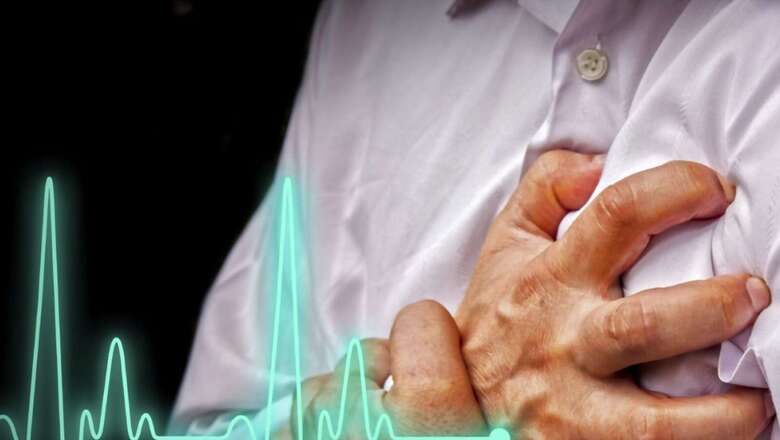
views
With age, most people tend to develop conditions such as diabetes and high blood pressure. As the years go by, the heart muscle can also weaken, making a person susceptible to cardiovascular complications. One such heart condition that older adults are more vulnerable to include sudden cardiac arrest (SCA). When a person experiences an SCA, their heart comes to a standstill and does not pump blood anymore. This is a life-threatening condition as it puts all the organs, and thus the body, at immense risk. Since blood pumped by the heart carries vital oxygen to the organs, most organs are at risk of dying when the heart stops doing its job. In order to help out people around you, it is important to know the common symptoms of SCA and prompt first aid.
Feeling dizzy, lightheaded, and sick in the stomach, such that one feels like puking, are common symptoms. Moreover, if one feels like their heart is racing, they are short of breath or have chest pain, those could also be a symptom of SCA.
If you suspect that someone has had an SCA, calling for help and performing cardiopulmonary resuscitation (CPR) are the top two things to do. In case you have a phone handy and can immediately call for a doctor or an ambulance, do that before starting CPR. Remember that time is of the essence when it comes to saving a life in case of cardiac arrest.
If you are not trained in CPR and do not know how to perform artificial ventilation, sustaining bodily function manually by simply performing chest compression can still help. Your goal must be to compress the person’s chest at a rate of 100–120 compressions every minute. CPR can help keep blood and oxygen circulating until help arrives.
If you have an Automated External Defibrillator (AED) around and know how to use it, utilise it at the earliest. Using an AED could be your best shot at helping the person survive. Again, time is of the essence, as the quicker defibrillation is done, the higher the chance of survival will be.
Read all the Latest Lifestyle News here




















Comments
0 comment